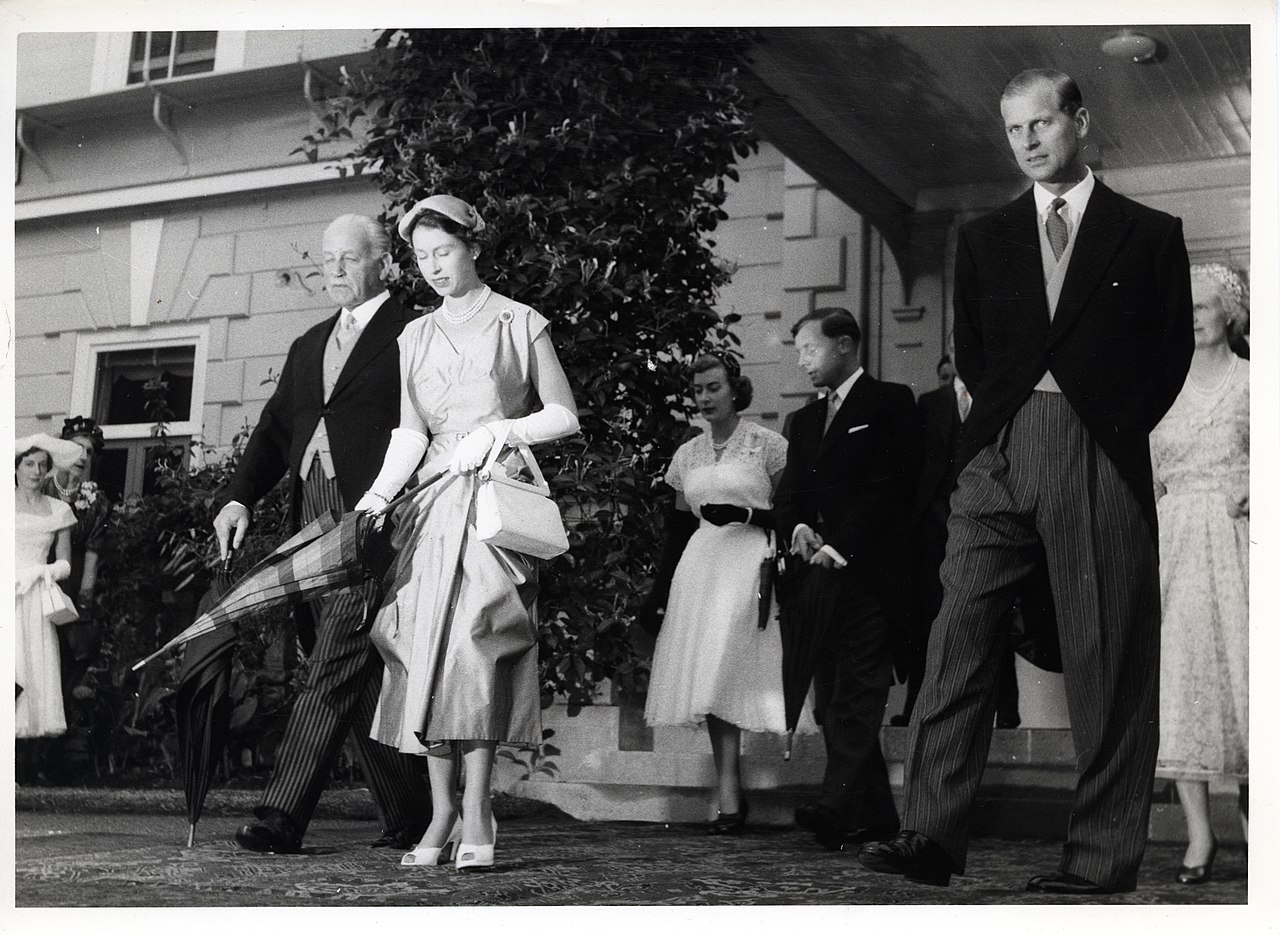The death of Queen Elizabeth II, whom many thought would go on forever, got me searching for a magazine article published in This England marking her fifty years on the throne. The article gave a very good account of the week leading up to the momentous moment she learned of her father’s passing and her ascendancy to the Throne.
As is well known this took place in Nairobi, Kenya on the first stage of a tour to Australia and New Zealand. The night before their departure Princess Elizabeth and the Duke of Edinburgh joined other members of the Royal Family in attending a performance of South Pacific.
On 31st January 1952, the Princess and the Duke left in the B.O.A.C Argonaut air-liner Atlanta. Despite poor health, King George VI stood in the bitter cold until the plane was out of sight. It was as if he had a premonition he would not see his daughter again. On arrival at Nairobi Airport the couple were presented with the keys to Senna Lodge, a cedar-wood bungalow. This was a belated wedding gift from the people of Kenya. It was symbolic, perhaps, that all would not go well on this tour for when the Princess tried to unlock the door it jammed tight so that she could not enter.
A highlight of the visit was watching wildlife in the African bush which the Princess described as “the most thrilling experience of my life”. There was also to be an overnight stay at the famous Tree Tops Hotel. At some point, while watching from the tree the Princess unknowingly became Queen. Back in England, after a hare shoot at Sandringham, the King retired to bed early. During the early hours of Wednesday 6th February, the King died peacefully in his sleep and was discovered in his bed by his valet. His death was from coronary thrombosis.
The Queen meanwhile returned from Tree Tops to Senna Lodge quite unaware of the tragic news that was to come. While Prince Philip rested in the afternoon the Queen began writing a letter to her father. In a neighbouring room her private secretary, Martin Charteris, took a telephone call which gave him unconfirmed reports of the King’s death. Charteris dared not wake Prince Philip and he could not tell the Queen in case the report was wrong. Feeling helpless, he tuned into the BBC Overseas Service and heard the solemn music and the bell of St Paul’s tolling. Then followed a bulletin confirming the sad news.
Charteris woke Prince Philip who led his wife into the garden and broke the news that her father was dead and she was now Queen. She bore the news with courage and calmness. Then, as throughout her reign, she did not betray her inner emotions. She remained clear-headed and self-controlled. When Martin Charteris asked her by which name she wished to be known she replied “My own name – what else?” Charteris later said that Prince Philip looked as if the weight of the world had landed on his shoulders.
Back in London on the morning of February 8th, Queen Elizabeth the Second made her formal Declaration to the Accession Council at St. James’s Palace. She was still only 25 years old, exactly the same age as her namesake Elizabeth I had been when she acceded to the Throne some 400 years before. That afternoon she was driven to Sandringham to grieve with the family in private. At her father’s funeral in St George’s Chapel, the Queen curtseyed in front of the King’s coffin. It would be the final time in her life that she would curtesy to the Sovereign, for she was now the Monarch and a new Elizabethan era had begun.
Winston Churchill, arguably the finest orator of the English language, delivered a broadcast the night following the King’s death. His words are worth recalling. He said:
“The King walked with death, as if death were a companion, an acquaintance whom he recognised and did not fear. In the end death came as a friend, and, after a happy day of sunshine and sport, after ‘Good night’ to those who loved him best, he fell asleep as every man or woman who strives to fear God and nothing else may hope to do”.

